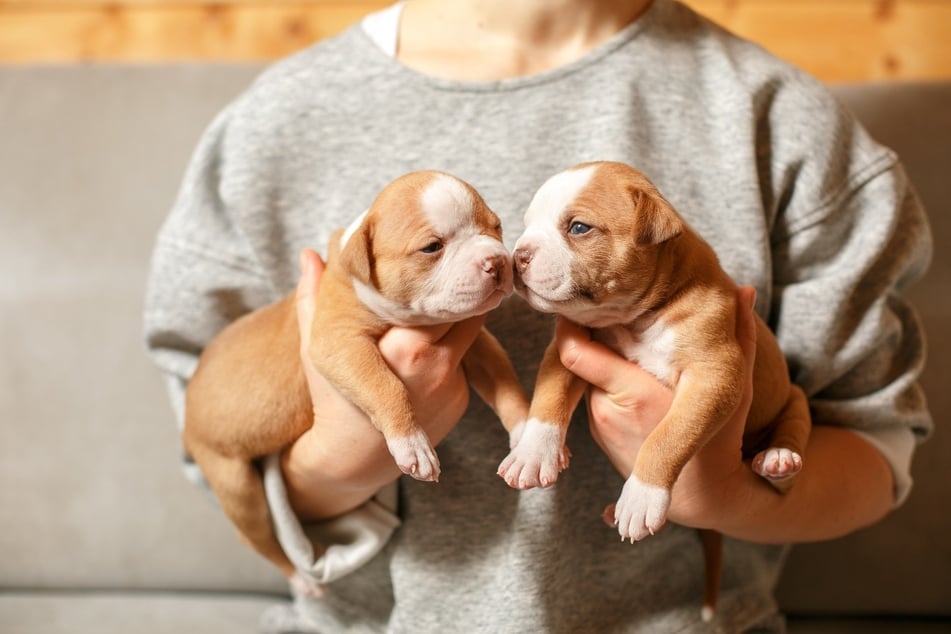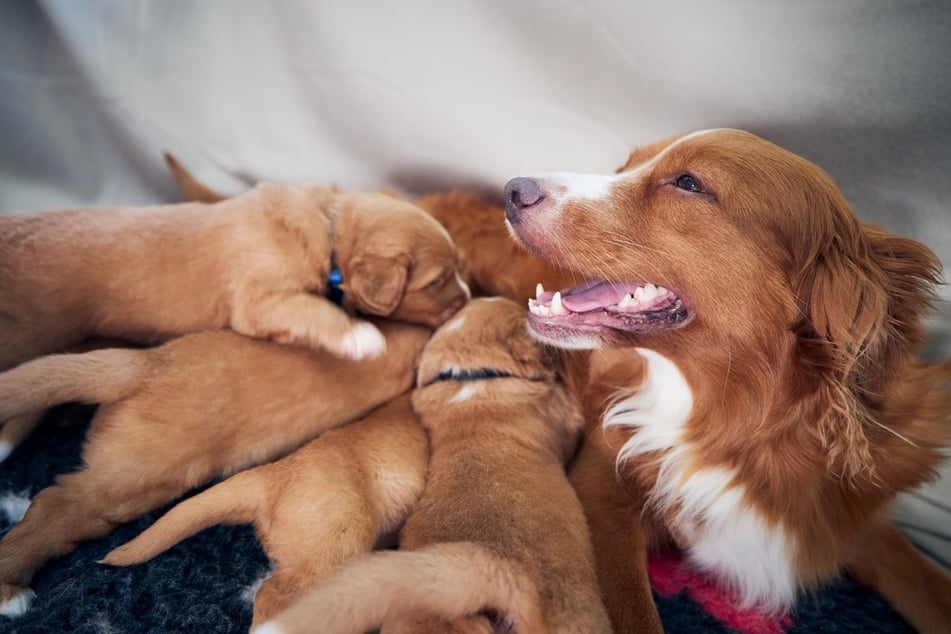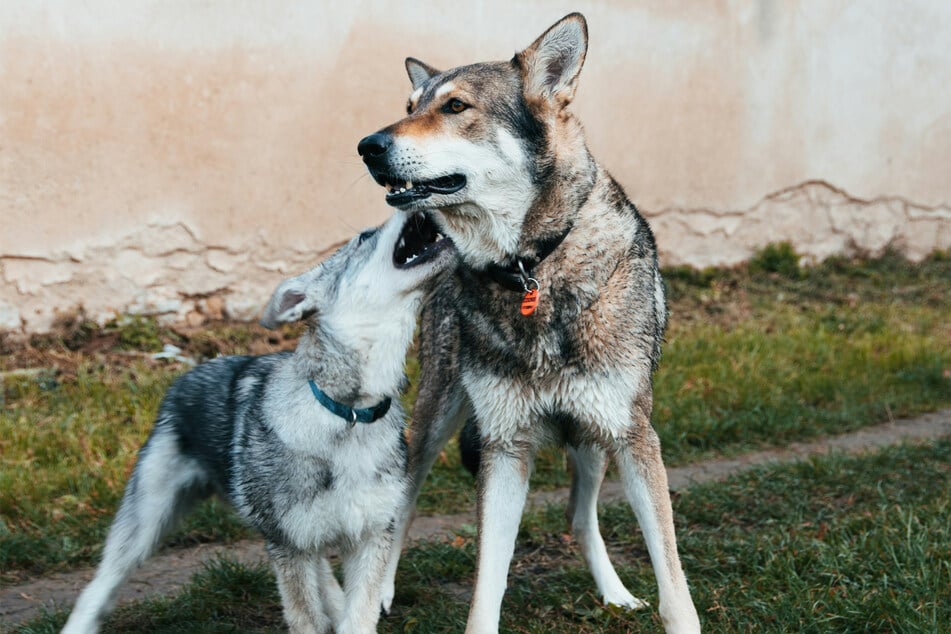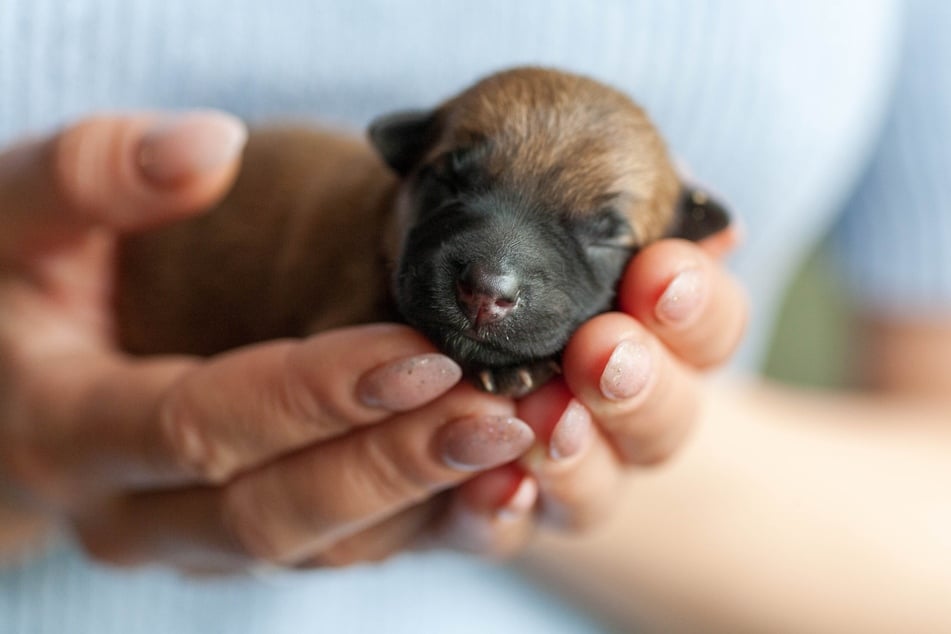When can puppies leave their mom?
When your dog gives birth to a litter of puppies, it's only natural to want to keep them all. Sadly, though, for most people, this is not an option, and a time comes when you must separate them from their mothers.

There comes a time in a dog's life when it is no longer a dependent puppy and can make it out in the world alone.
When this time comes, they must bid a teary goodbye to their beloved mother, shake the paws of their siblings, and head into their new home, ripe and ready for the rest of their lives.
When do puppies have to make this journey, though, and when do dogs leave their moms?
When can puppies leave their moms?

Puppies can generally leave their mom after they have entered the fifth and final developmental stage, at around four months old. These five stages take your dog from a helpless and blind little creature to a socialized and well-raised puppy that's ready to enter a human household and begin its life as a growing and happy hound.
The time that a dog spends with its mother is absolutely crucial for its development, as it learns behaviors, spends time with its siblings, gets stronger, and can experiment safely with curiosity. As the stages continue to move on, dogs become stronger and healthier and get closer to being ready for socializing in a human home.
Here are the five developmental stages of a growing puppy
Stage 1: Neonatal phase
This phase refers to the first two weeks of a puppy's life, during which the little treasure is still deaf and blind. Because their sense of smell is not yet properly developed, newborn puppies are completely dependent on their mother and unable to survive without her.
Stage 2: Transition phase
The transition phase begins in the third week of life when puppies open their eyes and their hearing starts to develop. The little ones now start to get to know the world in a whole new way.
Stage 3: Imprinting phase
This development phase lasts from the fourth to the seventh week of life. The puppies now have fully developed senses with which they can recognize their mother and siblings. It's now time for them to begin social contact, including with humans.
Stage 4: Socialization phase
Beginning from about the eighth week and running until the 12th or 13th, the socialization phase is extremely important for dogs. It shapes their character and, thus, their entire life. The little four-legged friends learn their first rules and behaviors in this development phase. These include, for example, the typical digging, sniffing out food, and biting.
Stage 5: Hierarchy phase
This development phase begins in the 13th week and ends in the 16th week of a puppy's development. At four months old, the puppies begin to establish the hierarchy, sounding out their boundaries. This is when they can begin early training and get integrated into a household.
Once your perfect puppy has reached the fifth stage and is starting to develop a hierarchy, at around 13–16 weeks old, it is safe and normal to remove it from the pack and move it into a human household.

When can puppies go to new homes?
Once a dog has begun the fifth stage of its development and is four months old, it is ready to be moved into a new household. This is critically important, as the following weeks are crucial for teaching it rules and giving it lessons. Having socialized the puppy with its litter and mother, it's now time to get it used to humans – making this a particularly important step in a dog's development.
When do puppies stop drinking milk?
Puppies will stop drinking their mother's milk towards the end of the imprinting phase, or at the beginning of the socialization phase, at about 7–10 weeks old. As with babies, this transition will occur at a slightly different time for different puppies and must be serviced with fresh, high-quality, solid puppy food by the humans supervising the puppy's development.
During this period, puppies may still continue to drink their mother's milk now and then, using it as a bonding and comforting experience as they slowly wean onto a diet that entirely consists of proper food. It's also worth noting that puppies begin to grow teeth earlier than this, at about 3–4 weeks, making the last month or so of breastfeeding quite painful for the mother.
Don't pre-guess the weaning of puppies of their mother's milk. Instead, provide what's necessary and pay attention. Keep the vet in the loop and ask for advice as much as possible.
Signs that your puppy is ready to leave home

It's incredibly important to remove a puppy at the right time, because if you take a puppy from its mother too early, it's likely to develop behavioral issues as it gets older. These issues can be quite unpleasant and can scar your darling doggo for the rest of its life, so they are worth paying attention to.
As a result, there are a few things to look out for in a puppy before letting it leave the comfort and safety of its mother and siblings:
- Is it at least four months old?
- Have they mastered their bite inhibition?
- Does your dog seem independent of the rest of the litter?
- Has the dog fully transitioned to solid food and water?
- Is the mother dog more commonly leaving the whelping area and spending time away from her puppies?
- When removed, does it bark and yap a lot in distress? Is it biting a lot? Is it showing behavior problems?
- Is your puppy still peeing all the time? Does it relieve itself in its immediate environment or seek out a more discrete location?
- Has competition developed among littermates?
When your puppy is ready to leave home, it will be safe and normal for it to say goodbye to its mother and siblings. That doesn't mean it isn't sad, though, and we wouldn't blame you for shedding a tear!
Cover photo: 123RF/smolnyi




